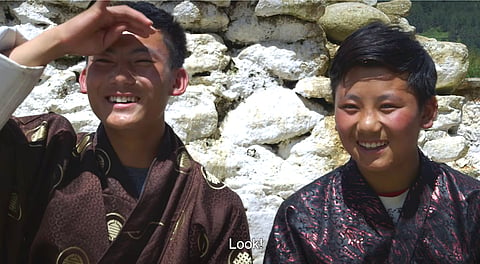Photo: Screengrab from ‘The Next Guardian’ (2017)
Culture
Screen Southasia: Q&A session for ‘The Next Guardian’
A conversation with the filmmaker Arun Bhattarai, director of ‘The Next Guardian’.
At Screen Southasia, we host monthly online screenings of compelling documentaries from the region, including Nepal, India, Kashmir, Pakistan, Afghanistan, Bhutan, Tibet, Myanmar, Bangladesh, Maldives and Sri Lanka. We present a diverse range of films, both classic and new, that showcase the unique cultures, histories and perspectives of Southasia. Screen Southasia is a partnership between Himal Southasian and Film Southasia. For updates on future screenings and Q&A sessions, sign up here.
For our latest Screen Southasia Q and A session, recorded on 5 June 2023, we speak with Arun Bhattarai, co-director of the documentary film The Next Guardian – a love-filled portrait of a family in Bhutan.

